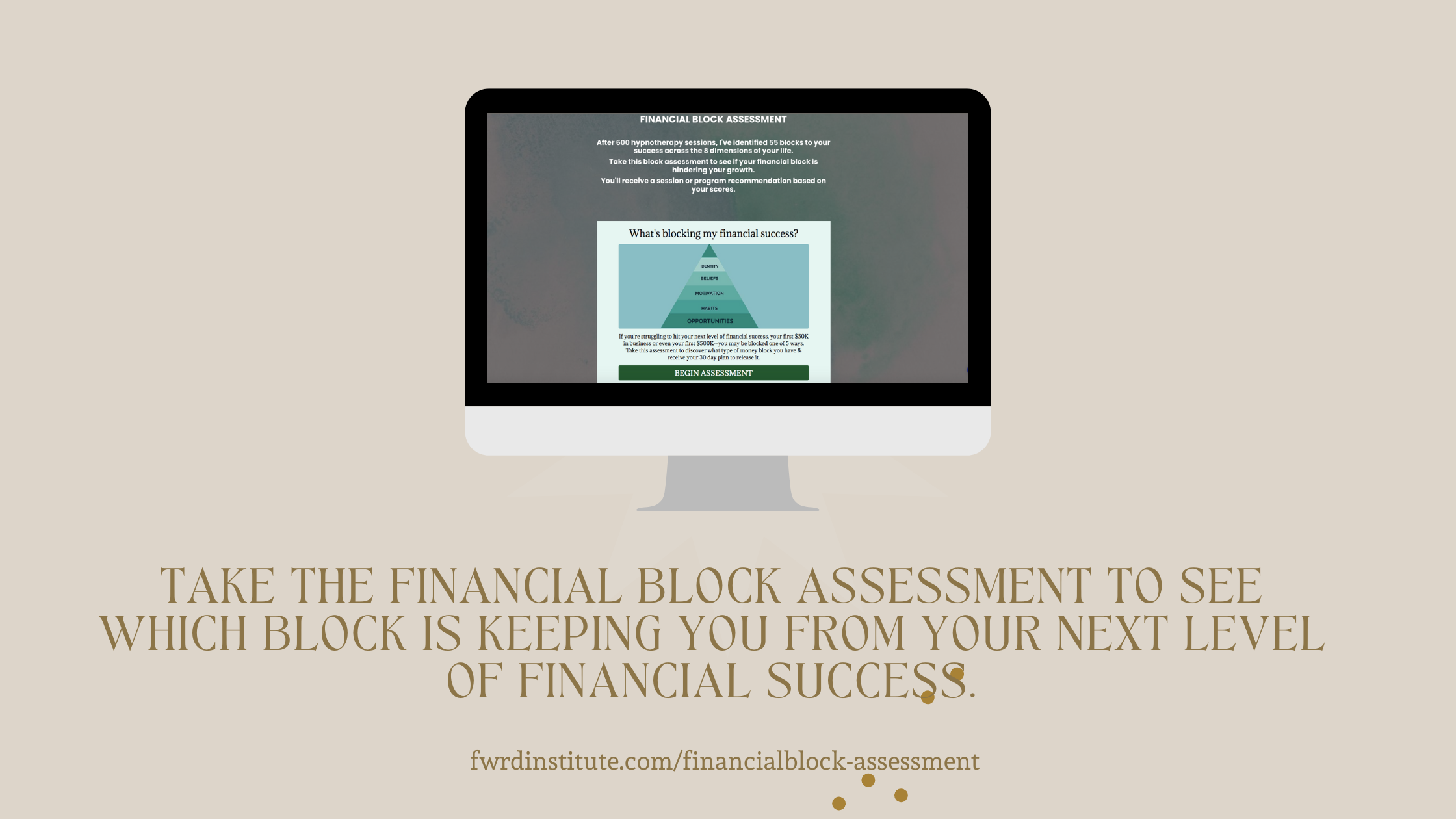Declutter Your Current Reality To Create Your Desired Reality

Welcome to Part 3 of Creating Your Desired Reality.
So the word decluttering doesn’t just apply to housekeeping. In a household setting, decluttering refers to cleaning, general tidying, and eliminating things from the home that have become useless or obsolete.
The same concept can be applied to your mind. It’s the process of lowering the burden on your mind by eliminating unnecessary worry and thoughts.
This can be accomplished by making changes to your life and your thought processes. Although clutter is always caused by your mental processes, external events can serve as triggers.
Eliminating the triggers is a powerful way to declutter your mind.
But you can also have ineffective habits for dealing with stress, boredom, and uncertainty. Excessive thinking can be another form of mental clutter. It uses valuable resources and drains your ability to focus.
Your environment is another possible source of mental clutter. A cluttered environment isn’t conducive to a calm and relaxed attitude. The people in your life can also clutter your mind.
It’s important to address every possible cause.

The Primary Causes of Mental Clutter
#1 Environment
Your environment includes your home and work environments. You spend most of your time in one of these two places. Avoid underestimating the impact your environment can have on your mental clutter. Removing environmental clutter can have a positive effect on the clutter between your ears.
Cleaning your office won’t trigger feelings of sentimentality, but decluttering your home will. The most important criteria when deciding whether or not to keep an item are:
- Do I love it?
- Do I need it?
If the answer is “no” to both questions, get rid of it. Sentimentality is a trap. There’s no reason to keep your plastic prom corsage from 1986 if it spends its entire life in a box in the garage.
However, there are worse offenses in the universe. Just be aware of the tendency of sentimentality to contribute to your environmental and mental clutter.
Declutter your home and work environments first:
1. Tackle one room at a time.
-
Attempting to take on too much at once will not only lead to failure, but you’ll also increase your level of mental clutter. Let’s not lose ground before we even get started!
-
A quick declutter is enough. Assuming you’re not a hoarder, each room shouldn’t take more than 30 minutes to clear away the visual clutter.
2. Start at the top and work your way down.
- Look at anything hanging on the walls. Do you love it? Do you need it? If the answer to both questions is “no”, sell it, throw it away, or give it away. Regardless of which option you choose, do it quickly.
3. Go through any closets, drawers, and shelves. Repeat the same process. If you don’t need it or love it, get rid of it.
4. Finish the room. Consider the furniture, books, items under the bed, your clothes, and so on. Every single item should be considered for elimination. Be ruthless. You don’t use 90% of your possessions. You won’t miss them.
5. Complete the rest of the house.
-
Include the garage, refrigerator, under the sinks, and every other location. Do you have more towels than you need? Do you have towels that are so threadbare that you avoid using them? Shoes that hurt your feet? Get rid of it all. Anything that stays in the house should be important to you or your life.
-
Focus on one room per day. It’s not necessary to spend a lot of time on each room if you move quickly and don’t spend 10 minutes on each item. If you’re not positive about keeping it, let it go.
-
Remember your car. In fact, you can declutter your car every time you fill your gas tank. Don’t just stand there watching the numbers increase on the gas pump! Declutter your car while you wait.
6. Address your work environment.
- Your work environment might consist of a desk and cubicle or an office. Or you might be responsible for an entire facility. Declutter whatever falls under your responsibility. Pay special attention to your desk and old files. Take the appropriate actions.
7. Remember your digital environment.
- This can be the most tedious part of your decluttering efforts. It might take the better part of a Saturday to complete.
- Computer. This includes your computer desktop and all your files. Eliminate everything you don’t need. Organize files and icons as necessary. Consider defragmenting your hard drive after you’re done. Declutter your work computer, too.
- Email. How many emails do you have that you don’t need? Remember to spend time on all your email accounts.
- Phone. Delete old text messages. Delete apps you no longer use. Update your apps as necessary.
8. Evaluate how you feel.
- After all of these unnecessary items are out of your house and workspace, notice how you feel. You likely feel happier, lighter, and less burdened. It’s a good feeling. Remember it. And remember what caused it – less things in your life, not more.
It might seem counterintuitive to address your environment when your challenge is more psychological in nature.
However, your environment can influence the amount of stress and anxiety you experience. This can trigger mental habits that create the mental clutter you’re trying to relieve.
#2 People
There are certain people that are hard to eliminate from your life. Your children are one example. No matter how old your children may be, the bond between parent and child is strong. However, there are situations that can justify eliminating adult children or your parents from your life. Not everyone has a place in your life.
Your life is sacred. Be careful whom you choose to include.
Consider how much the people in your life add and detract from it:
1. Which people are a source of negativity?
These people aren’t negative about your life. They’re negative about life in general. These are the people that are pessimistic, complain about everything, and suck the life out of you every time you see them. Ask yourself why you keep them around.
2. Consider the toxic people in your life.
Toxic people get in your way. They’re the people that get in the way of you reaching your goals. They’re discouraging and sabotaging. For some reason, they feel better if you don’t better yourself.
- It’s rare to have people that truly want to see you excel. However, that’s no reason to tolerate those who intentionally become obstacles in your life.
- If it’s a close friend or family member, first have a frank discussion. If that fails to have an effect, then show them the door.
3. Friends from another time.
It might be an old college friend or a co-worker from 20 years ago. Do you have anything in common besides a past? How much enjoyment do you receive from them? Think about it and make the necessary adjustments.
4. Unfamiliar social media pals.
You know these people. They’re Facebook “friends” that are actually friends of friends of friends. Do you need to see the birthday pictures of their grandchildren?
- If you’re using social media to promote your business, the more the merrier. Otherwise, make the necessary cuts.
5. Think about the people at work.
You have fewer options here. You might be able to eliminate those troubling people that work for you, but even that’s not easy in today’s day and age. You can find another position within the same company or at another company. You might have to fire your boss and find another opportunity.
Not everyone deserves to be part of your life. As far as anyone knows for certain, you only get one chance. Ensure you’re not allowing the people around you to lower the quality of your experience. Eliminate those people that are unnecessary or that you don’t love.
Make room for people that will contribute to your life and happiness.
Take our free assessment to identify the type of block you may have here
#3 Distractions
Distractions can be clutter in themselves. Distractions can also be contributors to clutter by diverting your attention from what’s important and allowing clutter to grow. Procrastination is a self-created phenomenon that everyone faces.
You never feel good while procrastinating. The work that you’re avoiding is still hanging over your head. No distraction is enough to completely eliminate that nagging feeling. You continue to check the time and shift your attention back and forth between the distraction and the work you should be doing. The result is mental clutter.
Some distractions aren’t all that distracting. They just happen to be a more enjoyable option than the work you should be doing. However, some distractions are highly distracting in their own right.
Evaluate the distractions you face in your life each day:
1. How do you waste time? Forget about procrastinating. If you have nothing pressing on your schedule, how do you waste time? Make a list. A few popular culprits include:
-
Internet
-
TV
-
Cell phone-related activities
-
Video games
-
Shopping
-
Mindless chatting with friends
-
These are likely the same ways you spend your time while procrastinating.
2. Consider the cost of losing that time. Even if you only waste one hour per day, and it’s likely much more than that, that’s 365 hours per year. That’s over nine 40-hour workweeks. That’s over two months! What else could you do with that hour?
-
Exercise
-
Build a blog
-
Take a college course
-
Make new friends
-
Write a book
-
Learn a language
-
Learn an instrument
-
Remember that you likely waste a lot more than 60 minutes each day!
3. Make a list before bed. Prepare a list of the most important 3-5 tasks you have to do the following day. Ensure that at least half of your list are items that will move your life forward in some way.
4. Understand why those items are important. Understand the benefit you’re gaining by taking these actions.
5. Reduce each task to the necessary steps. Tasks that are too big or too poorly defined encourage procrastination.
6. Set a timer.
Unless you’ve been meditating in a cave for the last ten years, you can’t expect yourself to be able to concentrate for 8 hours straight. Use a timer to create time boundaries. Most of us can concentrate for 30-60 minutes at a time. Then take a break for 5-10 minutes and get back after it.
Distractions are everywhere. Some of us are naturally better at ignoring distractions than others. Use your time to the best of your ability by reducing the distractions in your life. You’re then in a stronger position to avoid procrastination.
Consider that the worst procrastinators you know are struggling the most with life. Procrastination is perhaps the greatest fertilizer for mental clutter.
#4 Thoughts
Your thoughts are the genesis of mental clutter. This is where it all starts. Get control of your thoughts, and your mental clutter will be tamed. This is a major task, and not for the faint-hearted! It can be done, though.
There are several things that affect your thoughts, including:
- Mental habits
- Everyday stress
- Making decisions, especially when there are too many options
- Unfinished business
Mental Habits
Like your actions, many of your thoughts are habitual. You think about the same past experiences over and over. You daydream about the same imagined future over and over. These thoughts may be positive or negative, but they still contribute to mental clutter.
There are other mental habits that provide little benefit:
- Guilt
- Worry
- Regret
- Comparing yourself to others
- Gaining self-esteem by pleasing others
- Mentally checking out when faced with stressful situations
- Worry what others think of you
- Expecting the worst
- Thinking about the past and the future
Contemplate whether you struggle with any of these negative mental habits.
Everyday Stress
This is a big one. Your mind fills with clutter as your stress level increases. Your thoughts become less controlled and more negative. It’s not surprising that many serious mental health issues are often precipitated by stressful events. The level of stress that you face each day is relevant to the amount of mental clutter you have.
It’s often the accumulation of little things that have a significant impact. It’s traffic, late bills, a runny nose, an annoyed spouse, and a broken shoelace that can send your brain into a tailspin. Too many smaller stressors can be just as stressful as large stressors.
Decisions
Making a lot of decisions can really wear you out and create mental clutter. There’s a reason why Steve Jobs, Barack Obama, and Albert Einstein limited their daily wardrobes to just a few items – the elimination of choice.
When you’re faced with too many decisions, mental clutter grows.
Studies also show that making decisions decreases your ability to make additional decisions. Eliminate as many possible decisions as you can each day.
This is one good thing about habits. Habits eliminate the need to make a choice. Stick with the same healthy breakfast and take the same route to work each day.
Use habits to your advantage and save your decision-making muscles for important decisions.
Completing this process will completely shift your present so that you can create your desired reality.
Join us in Better You In 52, my monthly subscription for entrepreneurs who wish to rewrite their past, shift their present and create their future.
Read Part 4 of the guide here >>







